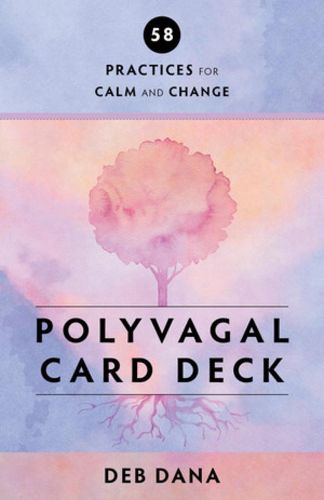Readings Newsletter
Become a Readings Member to make your shopping experience even easier.
Sign in or sign up for free!
You’re not far away from qualifying for FREE standard shipping within Australia
You’ve qualified for FREE standard shipping within Australia
The cart is loading…






Deb Dana is the leading clinical translator of Stephen Porges' influential polyvagal theory. With her new Polyvagal Card Deck: 58 Practices for Calm and Change, she further extends the reach of this groundbreaking perspective on mental wellness. These informational cards enable clients to enhance a broad understanding of their nervous system as well as help clinicians to guide them through a process of tuning in.
The cards have been thoughtfully created to provide polyvagal concepts and prompts grouped into three areas: 1) the autonomic hierarchy: ventral, sympathetic, and dorsal; 2) a section about regulating the system; and 3) a bonus section exploring play, stillness, and change. Clinicians can use the cards at the beginning of a session to frame the work or at the end to create a plan for ongoing work; clients can reach for the cards any time they want some nervous system support.
$9.00 standard shipping within Australia
FREE standard shipping within Australia for orders over $100.00
Express & International shipping calculated at checkout
Stock availability can be subject to change without notice. We recommend calling the shop or contacting our online team to check availability of low stock items. Please see our Shopping Online page for more details.
Deb Dana is the leading clinical translator of Stephen Porges' influential polyvagal theory. With her new Polyvagal Card Deck: 58 Practices for Calm and Change, she further extends the reach of this groundbreaking perspective on mental wellness. These informational cards enable clients to enhance a broad understanding of their nervous system as well as help clinicians to guide them through a process of tuning in.
The cards have been thoughtfully created to provide polyvagal concepts and prompts grouped into three areas: 1) the autonomic hierarchy: ventral, sympathetic, and dorsal; 2) a section about regulating the system; and 3) a bonus section exploring play, stillness, and change. Clinicians can use the cards at the beginning of a session to frame the work or at the end to create a plan for ongoing work; clients can reach for the cards any time they want some nervous system support.